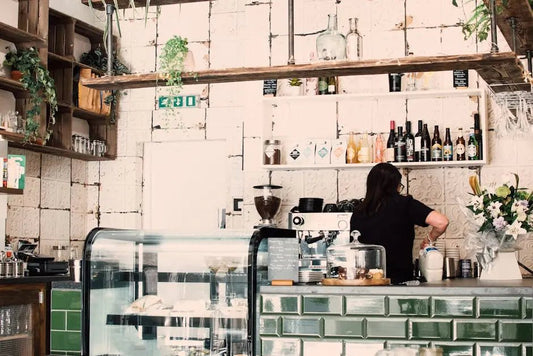Coffee culture refers to the social and cultural aspects centered around coffee consumption, preparation, and appreciation. It’s a phenomenon that goes beyond mere beverage consumption, influencing lifestyles, community interaction, and even economic trends. Understanding coffee culture helps us appreciate not just the drink but the connections it fosters.
Defining Coffee Culture
Coffee culture encapsulates the customs, practices, and social interactions surrounding the coffee experience. From café gatherings to brewing techniques, it’s about how coffee brings people together.
At its core, coffee culture is not just about drinking; it’s an art form that includes the preparation, sharing, and interaction that happens around coffee. People gather in cafes not only to enjoy their favorite brew but also to connect with others.
In different regions, coffee culture varies greatly. For example, in Italy, coffee is often enjoyed quickly at the bar, while in Scandinavian countries, the concept of ‘kaffekalas’ promotes longer, more relaxed gatherings centered around coffee. These nuances enrich the global appreciation of coffee.
Moreover, coffee culture has evolved with technology and global communication. The rise of specialty coffee shops and the popularity of social media platforms have created new spaces for interaction, appreciation, and education about coffee.
Historical Context of Coffee
Exploring the roots of coffee culture reveals its rich history, from its origins in Ethiopia to the global spread. Understanding these historical elements adds depth to our appreciation of coffee.
The story of coffee begins in Ethiopia, where legend has it that a goat herder named Kaldi discovered its energizing effects. This moment sparked a journey across continents. The beverage quickly moved to the Arabian Peninsula, where it became integral to social gatherings.
As coffee made its way to Europe in the 17th century, it transformed from a mystical beverage into a popular drink across societies. Coffeehouses served as important centers for intellectual discussions, where ideas flourished and movements began.
Today, we can trace the legacy of coffee culture through its routes from ancient rituals to modern-day practices. This historical context makes each cup of coffee not just a drink, but a continuation of a rich tradition.
Impact on Communities
Coffee culture plays a vital role in fostering community spirit. Coffee shops often serve as social hubs, enabling connections and conversations among individuals from various backgrounds.
The atmosphere of a local café can transform a casual encounter into a meaningful interaction. People often choose coffee shops for their ambience, which encourages lingering, sharing stories, and making memories over a warm cup.
Moreover, these spaces often host community events, art galleries, and discussions, strengthening local connections and supporting local artists. By engaging with coffee culture, we support our communities.
Additionally, many coffee shops partner with local producers and artisans, creating a network that thrives on mutual support and collaboration. This interconnectedness highlights how coffee culture can be a catalyst for economic growth and community development.
Coffee and Economy
The coffee industry is a significant economic driver, impacting agriculture, trade, and job creation. Understanding its economic implications highlights its importance in local and global markets.
Globally, coffee is one of the most traded commodities. Millions of people rely on coffee farming for their livelihoods, and the economic dynamics surrounding coffee production can have lasting impacts on developing countries.
In consumer markets, the growth of specialty coffee has spawned innovative business models, creating new job opportunities in barista training, artisanal roasting, and retail. This burgeoning landscape illustrates the diverse economic contributions of coffee culture.
Furthermore, the café economy flourishes in urban areas, where coffee shops provide essential social services and play a vital role in city life. Many entrepreneurs thrive by tapping into the local coffee culture, fostering economic prosperity.
Sustainability and Ethical Consumption
Increasing awareness of ethical sourcing and sustainability in coffee production is reshaping coffee culture. It encourages consumers to make informed choices that support fair practices.
Consumers are becoming more conscious of where their coffee comes from, seeking out brands and cafés that emphasize fair trade, organic practices, and direct sourcing. This change reflects a growing ethical consciousness within coffee culture.
The initiative towards sustainability is essential for securing the future of coffee as climate change poses extreme challenges to coffee-growing regions. Sustainable practices not only protect the environment but also uplift farming communities.
Moreover, many coffee enthusiasts are now participating in the sustainability movement by opting to support local roasters and farmers, thus reinforcing the significance of ethical consumption. Each cup of coffee has the potential to be a vote for a better future.
The Significance of Coffee Culture
In conclusion, coffee culture is an essential aspect of our social fabric, promoting community, creativity, and sustainability. It encourages us to appreciate the art behind coffee while fostering connections among diverse populations. As we continue to engage with coffee on multiple levels, its importance will only grow.








